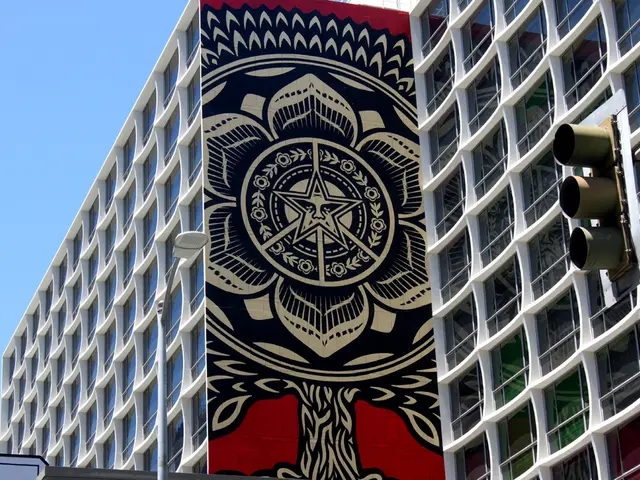Contemplating Value-Added Tax for Businesses with Lower Revenue
Finance Minister Pichai Chunhavajira is proposing a new idea to boost state income: collecting value-added tax (VAT) from businesses with an annual income below 1.8 million baht, currently exempted from VAT obligations.
In contrast to some European countries, businesses in Thailand must pay VAT if they earn over 1.8 million baht annually. The minister suggests introducing "VAT Category 2" and collecting a 1% VAT from businesses earning 1.5 million baht. This move could generate an additional 200 billion baht in revenue.
Many young entrepreneurs tend to report income below the 1.8-million-baht threshold to avoid VAT obligations, paying only personal income tax. Currently, a business with an annual income of 1.5 million baht can deduct expenses at 60%, leaving an annual tax payment of just over 10,000 baht.
Expanding the VAT base would help reduce the budget deficit to 3.5% of GDP from 4.4%, according to Mr Pichai. Additional revenue could be spent on investment projects, he added.
Cutting down on expenditure is difficult due to fixed costs, particularly the salaries of nearly three million civil servants. New revenue sources must be found.
Currently, the government's tax revenue collection stands at only 15.5% of GDP, compared with the peak level of 17%.
To boost domestic purchasing power, the minister suggested resolving household debt, estimated at 16.4 trillion baht. Of this amount, 1.2 trillion baht is classified as non-performing loans affecting about 5.4 million debtors.
The ministry plans to clear debts of 3 million of these debtors within three months. For those with non-performing loans exceeding 100,000 baht, financial institutions will be asked to restructure the debt, while the ministry will provide soft loans to support them.
Regarding rice production, Mr Pichai aims to raise income for the country's 28 million farmers by improving rice production efficiency. He added that reducing rice cultivation areas by 15 million rai would help cut supply and drive up market prices.
Thailand's VAT policies differ significantly from European countries, particularly concerning registration thresholds and sector-specific exemptions. Thailand's threshold for mandatory VAT registration is 1.8 million baht, while in most EU states, it ranges from €10,000 to €85,000. In contrast, the EU applies reduced VAT rates to essentials like food, books, and healthcare, while Thailand does not. European countries also offer small business schemes that exempt entities below certain thresholds from charging VAT.
- Entrepreneurs who currently report annual incomes below 1.8 million baht to avoid VAT obligations might be affected by Pichai Chunhavajira's proposal to introduce "VAT Category 2," which could collect a 1% VAT from businesses earning 1.5 million baht.
- Pichai added that expanding the VAT base could generate an additional 200 billion baht in revenue, potentially helping reduce the budget deficit from 4.4% to 3.5% of GDP.
- If the government manages to resolve the household debt of 3 million debtors within three months, as planned by the ministry, it would free up resources to potentially be spent on investment projects.
- Unlike in many European countries, Thailand does not have reduced VAT rates for essentials such as food, books, and healthcare, nor does it offer small business schemes exempting entities below certain thresholds from charging VAT. This could be a departure from Pichai's proposed idea of collecting VAT from businesses with lower annual incomes.





